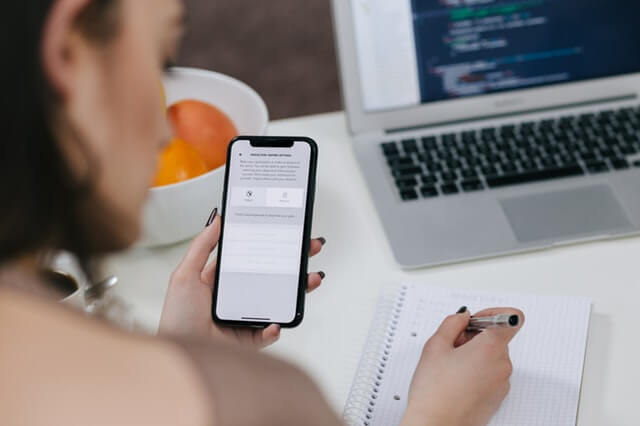We live in a day where thousands of online shopping transactions take place, but with that freedom comes an increased risk of fraud and identity theft. With these crimes consistently on the rise, it can be tricky to navigate the internet safely, even when accessing seemingly familiar and trustworthy websites. But there are ways to avoid these dangers. Below you'll find just a few ways you can protect your identity and personal information while surfing the web:

1. Know What You're Dealing With
When it comes to the internet and your personal information, what you don't know can hurt you. It's important that you know exactly what information you are putting online (including usernames, passwords, phone numbers, payment information, etc.). Write down all of your passwords and usernames with some old-fashioned pen and paper and avoid storing this information digitally. Keep this master list of passwords and usernames in a safe place, and don't be tempted to store all of your passwords online. After all, if you do get hacked, you don't want them to get their hands on all the login info for your different accounts.
.jpeg)
2. Only Use Secure Websites
Instead of giving up your favorite hobby of online shopping, you can ensure that you're only entering your information on a trusted and secure website. Fraudsters can easily steal personal information by creating convincing duplicates of popular websites (hint: you can often tell the difference when there is a slight misspelling in the URL).
3. Be Careful During the Holidays
While we are all busy running from store to store and trying to find the perfect gifts, hackers are hard at work, targeting unwary shoppers. With so much in-person and online shopping going on, it shouldn't be a surprise that hackers are very busy during the holiday season. This also means that it's time to keep a close eye on your balances and be absolutely sure where you're spending your money.
.jpg)
4. Watch that Balance!
This may sound like obvious advice, but it is a great line of defence when it comes to protecting yourself and your family from fraud. Shoppers need to keep a close eye on their checkings, savings, debit, and credit accounts in case there are any suspicious transactions. You can make this a habit by setting time aside, once a week, to check on all of your accounts and ensure that your finances are in order. If you do notice any dramatic or unexplained changes during your check-in, you should contact your bank right away.
.jpeg)
5. Two-Factor Authentication is your Friend
Whenever possible, we recommend to set up your accounts to include two-factor authentication. While this extra step might be a slight inconvenience, it can go a long way when protecting yourself from malevolent hackers who are trying to steal your information. Don't take our word for it - check out LifeLock, which offers a mobile-enabled, two-factor authentication process that is hooked up directly to your phone. That means your business will have more security without having to sacrifice usability and convenience. You can even use this promo code to unlock a 10% off discount on the first two years of their security services.

6. Use Mobile Controls & Alerts
While fraud and identity theft are on the rise, it's necessary that you play an active role in your financial security. With a simple app or alert system set in place, you can monitor all of your transactions right from your phone. Some mobile control apps even allow users to restrict purchases from certain locations, merchants, merchant types, time periods, and more. Another way to take an active role in your finances is to sign up for free alerts from the Federal Trade Commission (FTC) regarding scams. This will allow you to access the latest tips and advice to avoid active scams - just click here. While no one can completely protect themselves from identity theft, you can minimize the damage done by being immediately notified of a breach.

7. Steer Clear of Public WiFi
Who doesn't love free WiFi? It can be a great convenience and help your productivity, but it also gives hackers and fraudsters a chance to steal your personal information. Since there is relaxed security when it comes to public WiFi there is an inherent danger that some clever hackers may be able to steal your info. This is largely because many mobile apps do not properly encrypt information and don't offer the same security that computers do. So, if you have to make any sensitive transactions or access your bank account, use a secure wireless network or your phones own data network over the free WiFi.
.jpeg)
8. Beware of Phishing Techniques
To this day, phishing is still one of the most common hacking techniques bring used online. Victims of email phishing often receive an email telling them that their email accounts had been compromised. They are then given a link in an email that takes the victim to a page that closely resembles a normal email login page, where they are prompted to enter their username and password. Thus, giving a fraudster access to their account.
This type of fraud is incredibly common and can also be used to access your credit card information, personal information, and more. To avoid this, you should be wary when opening attachments or clicking links that are provided in emails. If you get an email that appears to be warning of fraudulent activity, delete the email, call your bank, or go directly to the website to investigate.